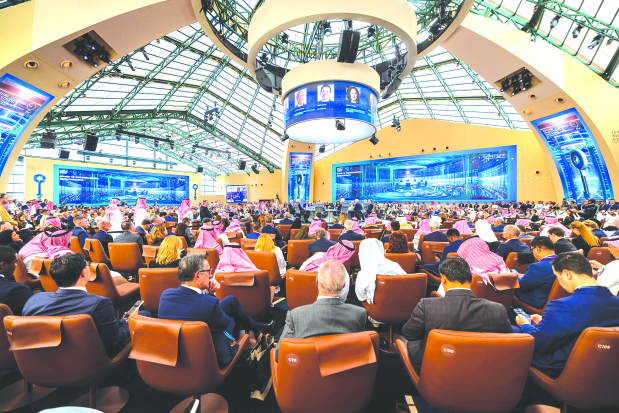More than $250 billion in deals have been signed through the Future Investment Initiative platform since its launch less than a decade ago, according to Saudi Public Investment Fund governor and FII Institute chairman Yasir Al Rumayyan.
Opening the ninth edition in Riyadh, he said this year’s gathering seeks to elevate the initiative’s global effectiveness.
Al Rumayyan described FII as the world’s largest forum convening leaders, decision-makers, and investors to influence the trajectory of the global economy, Al Arabiya reported.
He said attendees from government and the private sector collectively represent significant capital and responsibility, alongside greater opportunities to help shape economic outcomes.
Al Rumayyan urged participants to act with that responsibility in mind and to capitalise on the opportunities at hand.
Over the past year, he noted, investor and corporate ambitions have shifted amid rapid economic and technological change.
He argued traditional economic models are no longer sufficient and called for governments and businesses to operate as true partners to advance a new model of international co-operation and global prosperity.
PIF serves as a cornerstone of Saudi Arabia’s Vision 2030 economic transformation strategy, driving diversification and sustainable growth beyond the oil sector.
As one of the world’s largest sovereign wealth funds, PIF manages assets exceeding $1.15 trillion, up from about $925 billion a year earlier, according to official data.
The fund’s investments span multiple sectors and geographies, with a growing focus on technology, infrastructure, and green energy.
PIF’s mandate aligns with the kingdom’s broader ambition to position Saudi Arabia as a leading global investment destination, supported by large-scale projects and international partnerships designed to accelerate non-oil gross domestic product growth.
Al Rumayyan said FII has become the venue where global leaders and investors discuss shared opportunities and challenges.
He pointed to a widening gap between individuals’ optimism about their personal futures and their pessimism about the world’s outlook, adding that technology can help bridge this divide if deployed inclusively.
He cautioned that artificial intelligence could widen educational disparities unless governed fairly and responsibly.
He identified inequality as a major impediment to human progress and cited expectations that around 10 per cent of the global population could be living in extreme poverty by 2025.
Nonetheless, he expressed confidence that the leaders gathered at FII can convert today’s challenges into opportunities that benefit society.
Addressing Saudi Vision 2030, Al Rumayyan said the programme has set a new global benchmark for economic transformation.
He urged that true wealth is measured by the prosperity of people rather than numbers, and encouraged participants to use the three-day forum to forge cross-border partnerships that unlock transformative opportunities for the benefit of humanity.
FII acting chief executive officer Richard Attias highlighted the growing scale and inclusivity of this year’s edition, which brought together more than 9,000 participants, including delegates, members, and media representatives from around the world.


&uuid=(email))